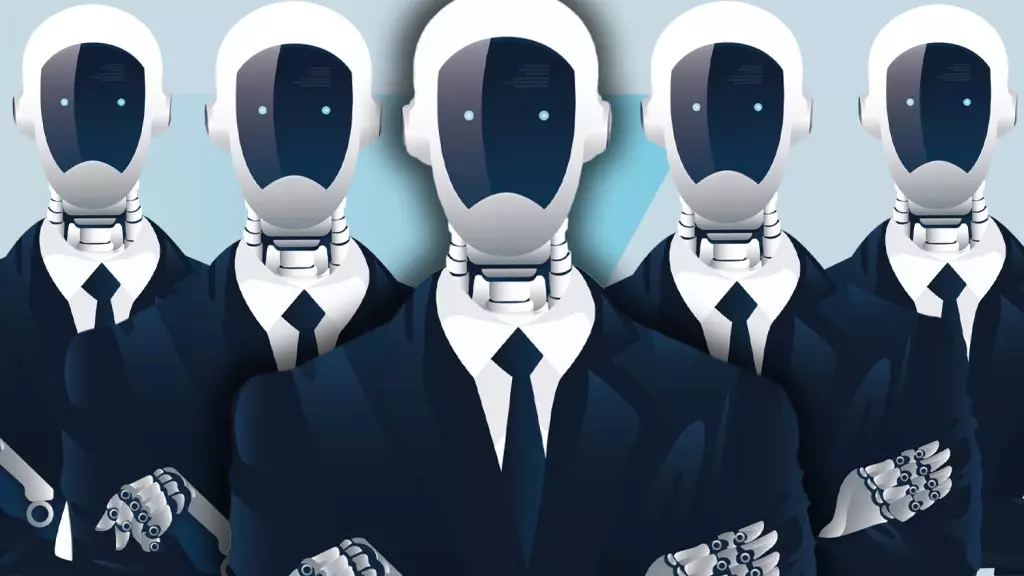As artificial intelligence continues to permeate various sectors, the entertainment industry is grappling with serious ethical dilemmas surrounding the rights of performers. The UK actors union, Equity, has boldly positioned itself as a voice for safeguarding the rights of its members in the face of what it describes as the infringement of personal and intellectual property through the use of AI technologies. This article delves into the union’s recent announcement to hold major corporations, including BBC, Disney, and ITV, accountable for potential rights violations involving the training of AI models, which they claim violates the principles underpinning intellectual property and data protection.
Equity’s open letter sent to prominent media executives underscores the urgency and seriousness of their concerns. The union expresses a resolute determination to defend the rights of its members, stating unequivocally that they will resort to legal action if necessary. Liam Budd, the Recorded Media Industrial Official of Equity, has labeled the unauthorized use of performers’ data as “industrial scale theft.” This stark characterization highlights the perception among actors that their contributions—often painstakingly developed through years of training and dedication—are at risk of being used without proper acknowledgment or compensation.
The central concern raised by Equity revolves around AI developers’ increasing dependency on rights-protected content to train their algorithms. The union argues that content owners have been complicit by engaging in licensing agreements that permit AI companies to exploit this content, thus raising ethical questions about consent and ownership. Equity insists that any exploitation of protected content must align with a clear respect for the rights of performers and be compliant with applicable data protection laws, emphasizing that the current frameworks are insufficient to cover the unique challenges posed by AI.
In light of these developments, the urgency for legislative reform has never been more pressing. The Copyright, Designs, and Patents Act 1988, along with the UK General Data Protection Regulation, are key pieces of legislation that the union argues must adapt to the realities of AI technology. As outlined in the union’s correspondence, while AI presents promising opportunities for innovation, it also poses significant risks of appropriation and erosion of performers’ rights, necessitating a robust legal framework that can protect individual contributors from exploitation.
The Equity union also referenced the UK government’s recent AI Opportunities Action Plan, which proposes a copyright-cleared dataset for training AI models. While this initiative aims to spur AI growth in the UK, it must be reconsidered with caution, ensuring that performers’ rights are not sacrificed at the altar of technological advancement. Equity’s call for informed consent, transparency, and fair compensation reflects a broader imperative that should guide any future legislative amendments concerning intellectual property rights.
Constructive Engagement with Industry Stakeholders
Equity’s efforts to engage with industry stakeholders point toward a concerted move towards collaboration rather than conflict. Notably, the union has already participated in “productive conversations” with various content creators focused on the responsible usage of performers’ work in AI model training. However, the letter calls for an expansion of these dialogues to encompass a broader range of entities, including broadcasters and gaming platforms, signaling that industry-wide cooperation is essential for establishing ethical standards governing AI technologies.
As negotiations with Pact extend into 2025, Equity’s focus on AI has emerged as a pivotal element of their discussions. By leveraging insights gleaned from the SAG-AFTRA contracts in the US—reformulated for the British context—Equity aims to ensure that all categories of performers, including dubbing artists and supporting actors, are given due consideration in these negotiations.
The battle for the rights of performers in the age of AI encapsulates a profound tension between technological advancement and ethical responsibility. As Equity stands firm against the encroachment of AI exploitation in the entertainment sector, it highlights the need for industry-wide accountability and a robust legal framework that honors the contributions of artists. The path forward requires ongoing dialogue and collaboration between unions, content creators, and policymakers to balance innovation with the protection of individual rights. In this evolving landscape, one thing is certain: the fight for fair representation and recognition for all performers has only just begun.

